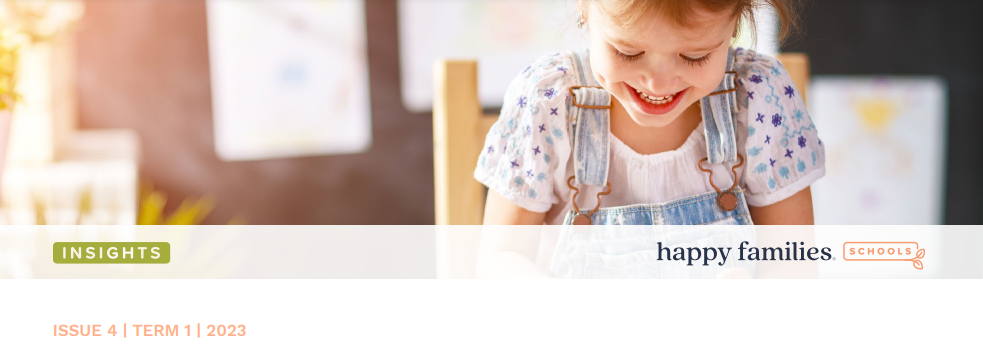Parent Partnerships

Challenges are the pathway to growth. When our children habitually avoid challenges, their learning stalls. When they learn to understand, value, and embrace challenge, their learning accelerates. So, helping our children develop a healthy relationship with challenge becomes one of the most important ways we can help them become better learners.
How does your child respond to a challenge?
Does your child avoid a challenge, seeking their “path of least resistance” in learning?
Or do they select the challenges they know they can do? Looking like they are working hard, but secretly avoiding mistakes by not taking on anything too challenging?
Maybe your child takes on challenges because the teacher tells them to. They follow the teacher’s instructions and are led through challenging tasks.
Perhaps your child takes on challenges because they need to. They have something they want to achieve, a goal in mind. Their relationship with challenge is born out of necessity so they can reach their goal.
But imagine if your child embraced challenges. In the spirt of John F. Kennedy when he said, “we do these things, not because they are easy, but because they are hard!” Imagine if when they were given the choice of doing something hard, or something easy, they’d choose the more challenging task, because they understood that challenge is the pathway to growth.
Becoming a Skilful Learner
How our children respond to challenges is a key element of what I call Learnership™ – the skill of learning. Learnership is a skill developed over time. It helps our children (and us) to get more out of every learning opportunity. Most importantly, Learnership is something we can teach our children that helps them to thrive both in school and life.
As parents we can help our children on the path to becoming better learners, by helping them develop a healthier and more productive relationship with challenge.
Comfort Zone V’s Learning Zone. What’s the Difference?
The first step in helping your child develop a healthy relationship with challenge is to teach them the difference between their Comfort Zone and their Learning Zone
We’ve all heard that we need to get outside our comfort zone and challenge ourselves, but how many of our children truly understand what that means?
For many people, getting outside their comfort zone means trying something new. But something new, isn’t always something challenging. Very often “new” is simply an “easy thing we haven’t done yet”. There is little struggle involved in this type of challenge, it comes with a great deal of certainty, and confidence that we’ll succeed. These challenges feel more like a task. They keep us busy, but they don’t help us get better. These types of challenges are in our Comfort Zone.
To be truly challenged our children need to stretch themselves beyond their current abilities. These types of challenge feel like a problem. Unlike a task where the path to completion is easily recognised, the solution to this challenge is not immediately apparent. They leave us feeling uncertain, and they involve struggle. The challenge feels “hard”. When our child feels like this, it’s a good sign they are in their Learning Zone.
Being in your Learning Zone feels uncomfortable. When our children find themselves in the Learning Zone, their first reaction is often to get out of it. Suddenly anything else seems like a more attractive option. They look for distractions, seek out easy options or adopt any number of avoidance strategies.
Struggle is temporary
It’s important to help our children recognise that the feeling of struggle and discomfort that comes with being in their Learning Zone is temporary. It passes. Many children believe if they are struggling now, then the next step in learning will involve even more struggle. They believe that the further they go, the more uncomfortable they’ll feel. So naturally, they turn away from further struggle.
The reality is that effort is the currency of growth, and struggle is the price we pay for that growth. The reward is that what we experienced as hard today, becomes easy tomorrow. It doesn’t get harder and harder and harder. It’s hard, then it’s easy. Then they move on, and the next step is also hard, until they make that easy. Being in the Learning Zone, and experiencing the struggle that comes with it, is not only a normal part of learning, but also an essential part of growth.
Parenting for more skilful learners
As parents we have an important role in helping our children become more skilful learners. This begins by helping them develop a healthy relationship with challenge. By teaching them that effort is the cost of growth, and normalising the struggle that comes from being in their Learning Zone, we help them become “comfortably uncomfortable” with challenge, and put them on a path of continuous growth.
AUTHOR
James Anderson
James Anderson is an international speaker, author and educator. In an educational landscape focused on teachers, James’ work focuses on learners. His signature work defines Learnership™ – the skill of learning. He answers the question: What does it mean to be a skilful learner? For further information visit www.jamesanderson.com.au You can also listen to James and Dr Justin Coulson discuss Learnership™ on the Happy Families podcast episode #529 (The Growth Mindset) and #559 (How to Create Skillful Learners).


